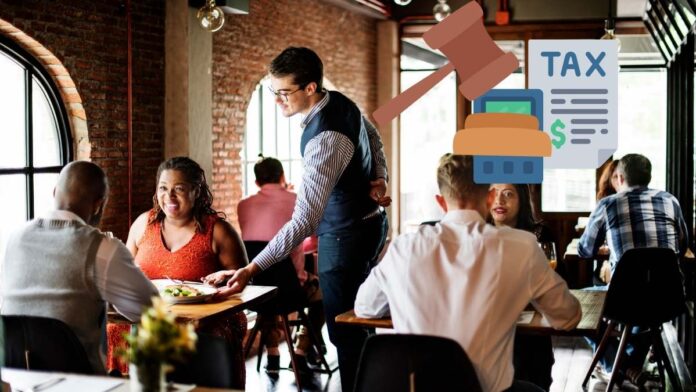The Delhi High Court on Tuesday asked the members of a restaurant body to use the term “staff contribution” for the amount they were claiming from their customers as a “service charge”.
Justice Prathiba M Singh, who was hearing the petitions against guidelines prohibiting hotels and restaurants from automatically levying service charge on food bills, directed the Federation of Hotels and Restaurant Associations of India (FHRAI) to clearly specify the imposition in their menu cards and not charge more than 10 per cent of the bill.
“They will make it clear that it is not a levy by the government,” the judge observed.

The FHRAI informed the court that they have over 3,300 establishments as its members and while there was no uniformity with respect to the levy of service charge amongst its members, they did not have any objection to the use of an alternative term for the amount.
The senior counsel for FHRAI said some of its members were imposing service charge as a mandatory condition.
Petitioner National Restaurant Association of India, which has around 1,100 members, however, said service charge was the accepted terminology that cannot be replaced and there was no confusion with respect to its use.
“The matter would require a hearing. In the meantime, it is directed that the members of the FHRAI shall use the term ‘staff contribution’ for the amount of service charge that they are charging,” the court said.
“The same shall not be more than 10 per cent excluding GST. Menu cards shall specify in bold that no further tip is to be paid to the establishment,” ordered the court as it clarified that it was only an interim order that is subject to the final outcome in the petitions.
The court noted that the two petitioners were the apex bodies which represented the interests of the restaurants.
It directed that the matter be listed for hearing on October 3, observing that “this affects the entire country”.
Earlier, the court had asked the petitioners to state if there was any objection to the term “service charge” being replaced with alternative terminology, such as “staff welfare fund”, to prevent confusion in the minds of the consumer that the same is not a government levy.
Petitioners had moved the high court last year by fling two separate petitions challenging guidelines prohibiting hotels and restaurants from automatically levying service charge on food bills.
The guidelines, issued by the Central Consumer Protection Authority (CCPA) on July 4 last year, were stayed by the high court later that month.
Petitioners have said that service charge, which has been present for the last several years, is a “traditional charge” and is disturbed amongst those who are not before the customers” and the restaurants are seeking the same after displaying due notice on their menu cards and on their premises.
Also Read
They have thus argued that the CCPA order is arbitrary, untenable and ought to be quashed.
Seeking dismissal of the petitions, CCPA, in its counter affidavit, said the petitioners have totally failed to appreciate the rights of the consumers, whose hard-earned money is unjustly collected automatically or by default in the name of service charge.
It has added that the objective of collecting mandatory service charge from consumers over and above the price of food items and applicable taxes is “unlawful” as no proportionate service is separately provided to consumers.
The high court had on July 20, 2022, stayed the CCPA guideline and said the stay is subject to the petitioners ensuring that the levy of service charge, in addition to the price and taxes, and the obligation of the customer to pay the same is duly and prominently displayed on the menu or other places.







